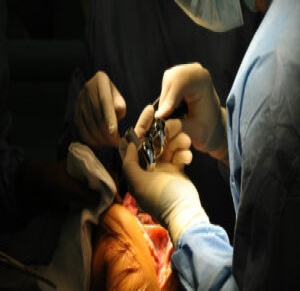Cartilage is a vital part of your knees. It keeps the knee joint from rubbing against your shinbone and thigh bone and lubricates and cushions your knees as you bend, lift, walk and run. Cartilage is a flexible, rubbery material, but it can be damaged, worn down, and torn. When cartilage is damaged, the problems can be severe, and treatment can become an absolute necessity if the issues start to worsen and become chronic, eventually leading to the need for total knee replacement surgery.
Over 3o percent of Americans over 45 have some form of knee pain. Still, when it becomes even more severe due to cartilage damage, then cartilage repair and cartilage restoration can be the best course of action.
Common causes of Cartilage damage
Cartilage damage occurs for a variety of reasons.
- One of the most common is if your knee is hit hard during an accident. It could also be during a rough sports match, for example, taking a solid hit that impacts your knee in hockey or on the football field.
- Another common cause of cartilage damage is long-term stress. This can be due to having a high weight and being obese and can also be due to having a profession that involves frequent heavy lifting and exertion that impacts the knees and puts significant pressure on the cartilage.
- At the same time, cartilage can also be damaged by lack of movement and use. If you rarely get exercise or move, cartilage can become brittle and cease working as well, eventually losing its vitality and efficacy due to disuse.
Easy possible cures for Cartilage damage
Cartilage damage is generally approached by the simplest and easiest means possible, first with surgery as a last resort. Starting with physical therapy and the use of non-steroidal anti-inflammatory drugs (NSAIDs) like aspirin or ibuprofen, the cartilage will sometimes heal itself over time.
Minor cartilage injuries can also be corrected through a process called microfracture, where small holes are made so bone marrow cells can flow in and form fibrocartilage which will reinforce and repair the existing cartilage.
The Complex cures
This is not always the case, however, and in some cases, cartilage damage can only be repaired through surgery. Arthroscopy is a surgery that can be done to treat and restore damaged cartilage effectively and is also known as keyhole surgery. The procedure uses a tiny fiber-optic camera to look at your knee joint, determine exactly what the problem is, and then repair it through another small incision. In some cases, arthroscopic debridement is all that will be needed where loose cartilage debris will be washed out, allowing the remaining cartilage to function properly once again, while in other cases the knee will need to be opened up further for a larger surgery to fix the cartilage damage and deal with the problem.
Recovery Process
Recovery from cartilage repair surgery is six weeks to two months. During this time, the client will be asked to use crutches to alleviate any strain on the cartilage, and in some cases recovery can stretch for a longer period of time, taking up to six months. Because cartilage repair and restoration is a complex and sometimes difficult process, consult only fully-licensed professionals with years of experience and an established reputation.
Why choose Dr. Bagwe?
Dr. Mahesh Bagwe is an orthopedic surgeon who leads the Orthopedic Center of St. Louis. He and his friendly, professional team specialize in cartilage repairs in St. Louis and have years of experience with cartilage restoration and getting clients back on their feet and feeling great once again.
Reach out and contact Dr. Bagwe today.






